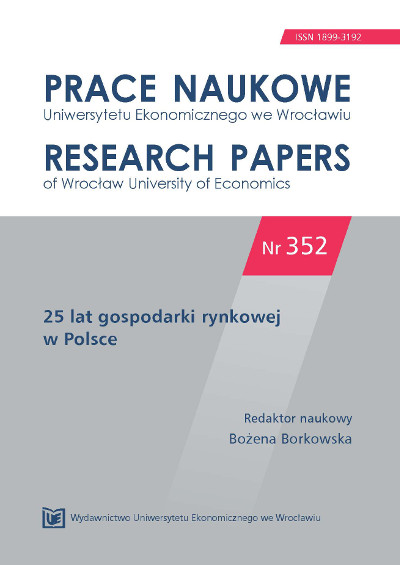The “maturation” of markets during the economic transition − the case of housing markets in Poland after 1989
The “maturation” of markets during the economic transition − the case of housing markets in Poland after 1989
Author(s): Rafał JakubowskiSubject(s): Economy
Published by: Wydawnictwo Uniwersytetu Ekonomicznego we Wrocławiu
Keywords: post-socialist countries; political transition; market imperfections; economic efficiency; institutional changes; housing markets
Summary/Abstract: The political transition from a centrally planned to a market economy is a complex phenomenon. One of the main components of the transition in post-socialist countries was the process of formation and development of a huge number of various markets. The objective of this paper is to provide a concise description of this phenomenon. For this purpose, the paper shows the specific imperfections of markets which are widespread and distinctive in the initial period of economic transition. The four groups of such imperfections were identified in the article, i.e.: 1) limited scope of a market, 2) low level of market knowledge, 3) residues of central regulation and 4) institutional deficiencies. The removal of such particular imperfections significantly increases the efficiency a given market – and therefore this process can be also figuratively named as ”market maturation”. This “maturation” causes not only increasing the number of transactions and larger variety of goods, but also particular changes (institutional, organizational, technical, etc.) in the given market’s structure. In the paper these issues are shown in more detail using the example of housing markets in Poland.
Journal: Prace Naukowe Uniwersytetu Ekonomicznego we Wrocławiu
- Issue Year: 2014
- Issue No: 352
- Page Range: 91-102
- Page Count: 12
- Language: English

